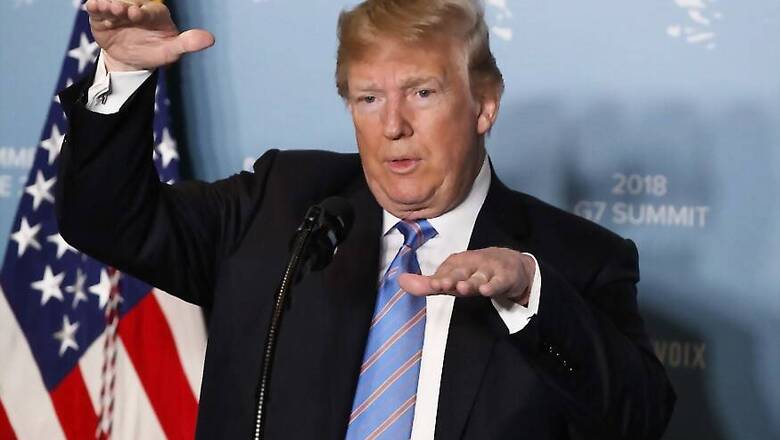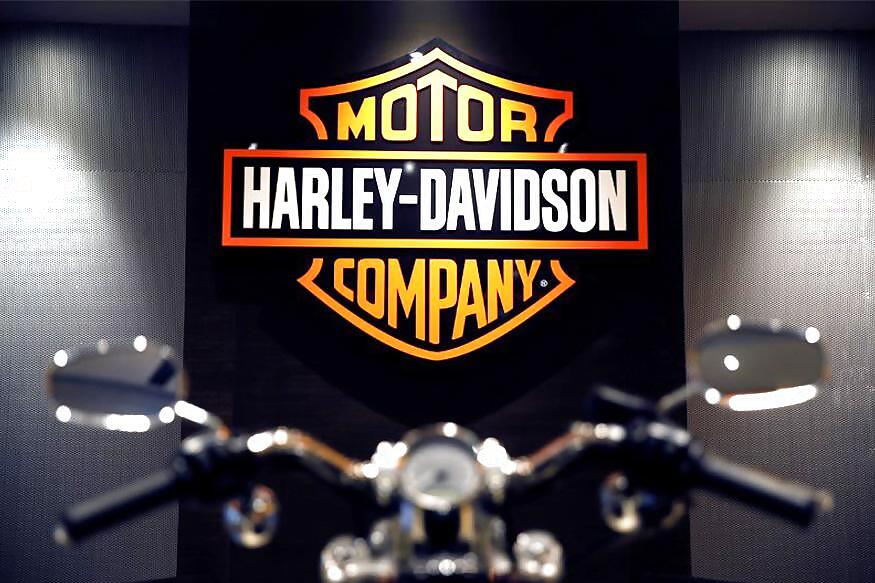
views
US President Donald Trump, after leaving the G-7 Summit that took place in Canada, took a dig at India and the Indian import duties – again. Trump also said that the “We're like the piggy bank that everybody is robbing”.
"This isn't just G7. I mean, we have India, where some of the tariffs are 100 percent. A hundred percent. And we charge nothing. We can't do that," said Trump as he threatened to stop doing trade with countries "who are being unfair" to the US.
This isn’t the first time that Donald Trump has taken a dig at the Indian import-taxation system as earlier this year, the president had clearly said that when India sells a motorcycle in the US, the Indian company is levied a tax of zero percent whereas when products by a company like Harley-Davidson are sold in India, they are subjected to an import duty of 100 percent.
Now there are two key factors that the president got wrong. First, the US does charge a nominal import duty of 2.4 percent on the imported motorcycles. And second, the import duty being charged by the Indian government on imported vehicles (both cars and motorcycles) has now been reduced to 50 percent.
But why does Donald Trump refer to the Harley-Davidson every single time?
Sorry, we cannot let our friends, or enemies, take advantage of us on Trade anymore. We must put the American worker first!— Donald J. Trump (@realDonaldTrump) June 11, 2018
It is the only American auto manufacturer doing well in India. Ford, one of America’s biggest automaker, holds a market share of just about three percent in the Indian four-wheeler passenger vehicle segment. The other major manufacturer Chevrolet has now stopped selling cars in India and are using their Indian manufacturing plant to make cars only for exports. That leaves us with Harley-Davidson.

So, it is understandable why Trump would want a system of no import tax in place. But what has been suggested by Mr. President repeatedly is a reciprocal tax system. An eye for an eye of sorts. And if you were to look at it this way, then the Indian motorcycles being sold in America would come levied with a 50 percent import duty too. Look closer and you’ll notice that perhaps the only motorcycle being imported in the US are Royal Enfield motorcycles. While there are no official sales numbers, their sales in America are expected to be less than a 1000 units a year. Whereas globally, the company sells over 600,000 motorcycles. At the end of the day, Royal Enfield won’t be impacted by the duty hike. It will be the US consumer who would have to pay more for an Indian motorcycle.
If you were to look at the Indian two-wheeler segment, you are looking at annual sales of over 17 million units – making it one of the biggest and most rapidly expanding automobile markets in the world. Harley-Davidson sells only about 300,000 units globally and most of which are in America itself. In India, their sales are about 5000 units.
The reason? America likes motorcycles with high-capacity engines whereas motorcycles with 100cc-150cc engines are sold mostly in India.
So there you have it. Donald Trump wants to have a share of the pie of the Indian automobile market and their only hope as of now is Harley-Davidson. But what needs to be looked at is the bigger picture. The Indian import duty is not exclusive to US, German automakers, Italian automakers, Swedish automakers and the rest are too subjected to this. Many have found ways around it by importing completely-knocked-down units (CKD) which are then assembled here in India – generating employment and are hence subjected to a duty of 15 percent. Some companies have also started to locally manufacture their best-selling units, case in point – the BMW 5-Series. With high localisation and less duties to pay, it has helped them in pricing the car more aggressively than ever which, in turn, further increases their sales and market share in India. Another example would be Triumph Motorcycles – a British luxury motorcycle maker who has motorcycles in the same price range as Harley-Davidson – has now made almost all of its portfolio as CKD units.
Perhaps, there are other ways to go around the import duty other than to completely stop trade between the two countries?
















Comments
0 comment